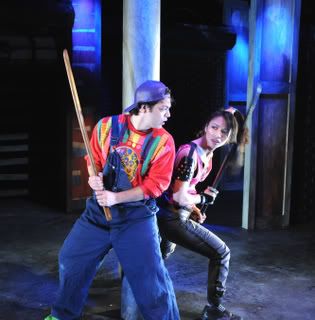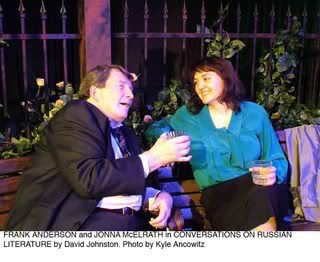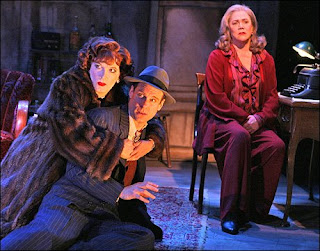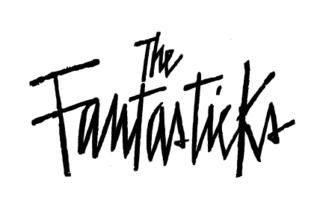 photo: Ryan Jensen
photo: Ryan JensenComposer/director Elizabeth Swados' latest, at the Flea, is a sung-through adaptation of the story of Kaspar Hauser, the mysterious, wild child orphan who became a cause celebre in Germany in the 1830's. The show's book, a collaboration between Swados and Erin Courtney, shapes the story of the cruelly mistreated lad as both a tale about the fickleness of celebrity and as a metaphor for the plight of the artist, wholly succeeding at neither. Nonetheless, the 90 minute one-act never lags, and bears Swados' unmistakable artistic stamp. Despite the often melodramatic events in the story, Swados eschews the sentimental in her score: the often unrhymed lyrics, the occasional dissonance, and the persistent dark chords bring color and texture to her melodies without disabling them. Several in the cast, featuring the Flea's resident Bats, are excellent singers whose raised voices literally vibrate the seats in the small black box theatre. Although the emotional impact of the show's finale is curiously muted, and the show's heightened, stylized presentation is not for all tastes even among musical theatre fans, the show is absorbing and accomplished, also boasting a captivating lead performance by Preston Martin.















smaller.jpg)








